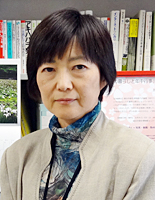“Expectations for Living Lab” Masako Nakamura (Professor, Tokyo City University)

As the need for open innovation grows, the key word is not only cooperation between companies, but also “co-creation,” in which various entities such as local governments and citizens work together from the beginning.
In such a trend, living labs are rapidly attracting attention in Japan and increasing in number.
According to ENoLL (European Newtork of Living Laboratory), which promotes networking of living laboratories in Europe, living laboratories are co-creation and It is an experimental environment that fosters open innovation and uses the real life of citizens as a field.
In particular, the focus is on the (citizen) perspective, and it is also an important feature that it is an experimental effort in the real life of people, not in a university or corporate laboratory that is isolated from everyday life.
Living Lab is said to have originated in the United States in the 90s, but it has been actively adopted in Europe.
Some point out that this is influenced by the tradition of “participatory design” in Northern Europe, which has a history of democratizing the workplace since the 1970s.
As it spreads from the United States to Europe, and then to other parts of the world, its practice has diversified even under the same name, Living Lab.
Even in Japan, although it is difficult to grasp the numbers, there are many living labs with various backgrounds and themes.
Participating bodies, specific content, methods, frequency of holding, and duration of meetings can flexibly change depending on regions and issues.
Living Lab participants are said to have many advantages.
For example, from a citizen’s point of view, by participating in living labs, they can learn the latest knowledge, in some cases influence the development of corporate products and services, and become familiar with new products and services in advance. Through these activities, it is expected that the sense of ownership of innovation will increase.
Companies can also develop products that meet the needs of the parties and obtain feedback.
Local governments and governments are also more likely to be able to deepen citizens’ understanding of measures and proposals, learn the background of citizens’ opinions, and formulate better measures.
It is also an attractive field for researchers in product and service development, business administration, sociology, and other diverse fields.
Many living labs are also used in smart cities and super cities, and there are great expectations for them as one of the methods to respond to the “citizen participation” required in these initiatives.
